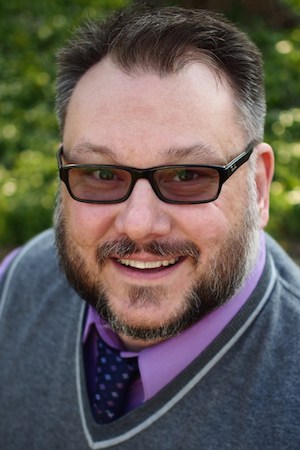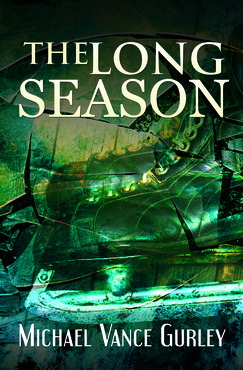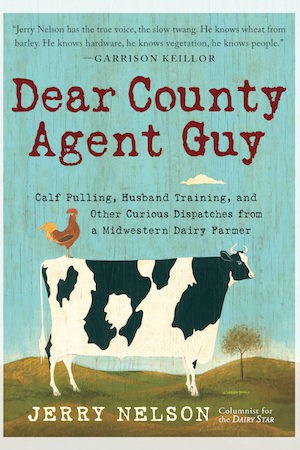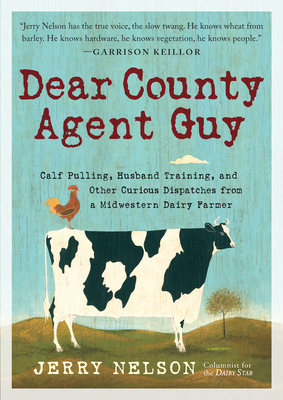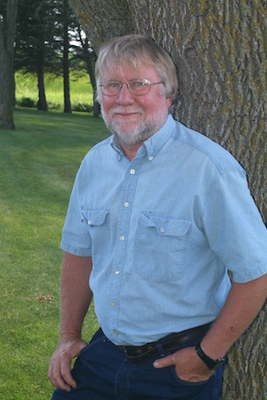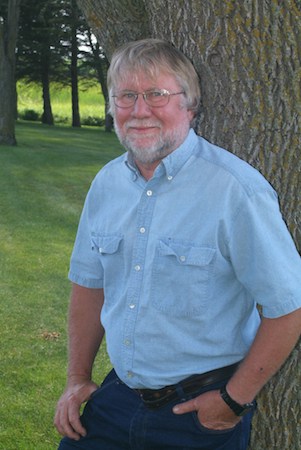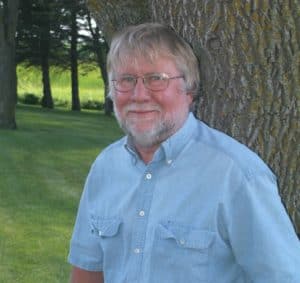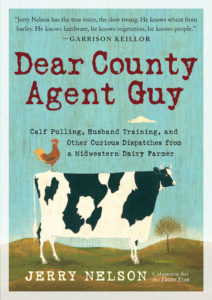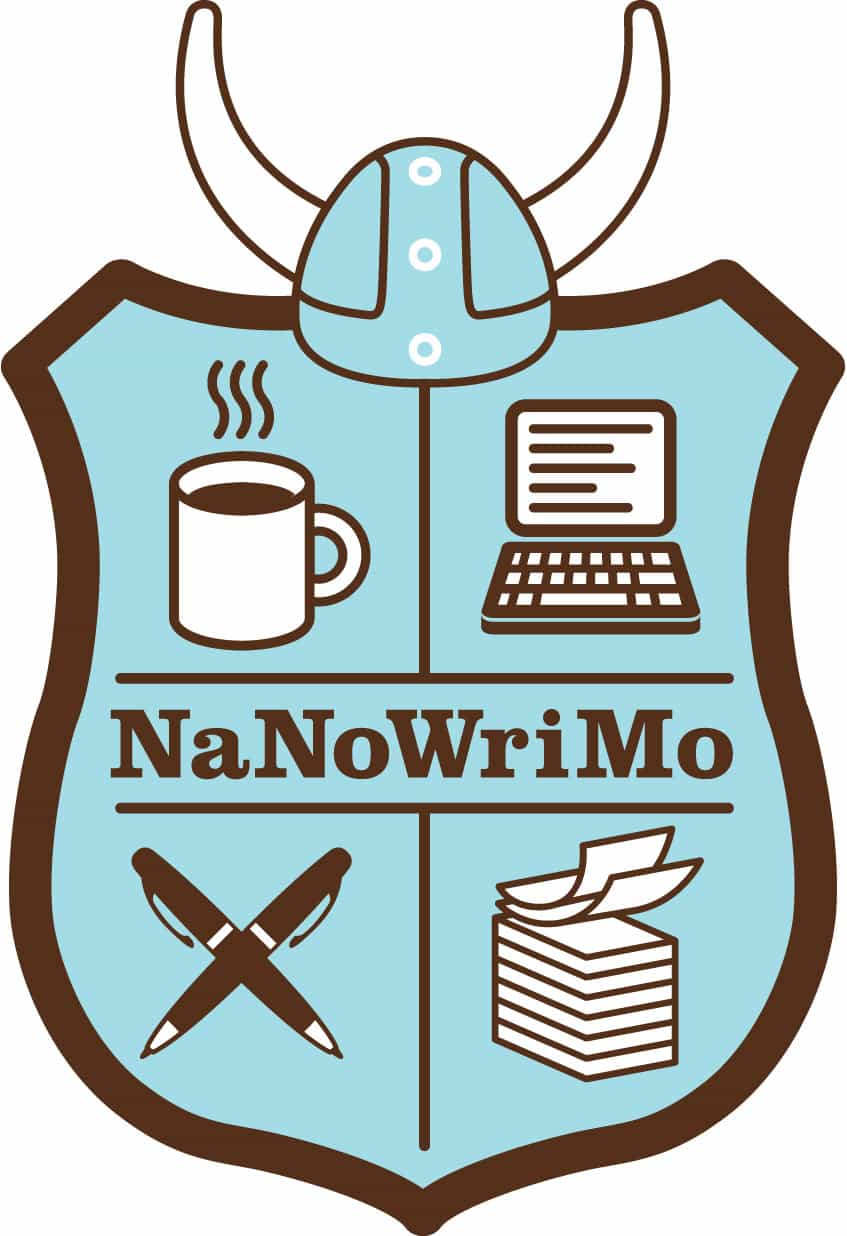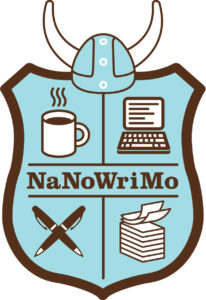Come Pitch Yr Book!: The Book Doctors on Richard Eeds Radio Show: Pitchapalooza 7-29 6:30 UNM Summer Writers Conf Santa Fe http://bit.ly/2aa3Rrv
Tag: pitchapalooza
Michael Vance Gurley on Publishing His Historical Gay Hockey Novel
We first met Michael Vance Gurley when he won our Pitchapalooza (think American Idol for books) in Anderson’s Bookshop (one of our favorite bookstores) in Naperville, IL. When he pitched us a book about Chicago, The Roaring Twenties, and a gay hockey player with a deep dark secret, we were hooked. We were sure it was a book. And now, lo and behold, his book The Long Season is out. So we thought we’d pick Michael’s brain about his road to publication.
Read the interview on the Huffington Post.
The Book Doctors: How did you learn to be a writer?
Michael Vance Gurley: I remember specifically wanting to be a writer in the 7th grade, giving horror movie fan fiction to kids, who loved it and wanted more, meaning it was either good or twisted enough for the junior high mind. Creative writing classes helped add depth and purpose to characters and plots that didn’t have a machete in them. I wrote comic books, and learned the value of research, plot design, and character development. After taking a break to work around the clock for years, I decided it was time to stop working so hard at not writing and started a novel. I didn’t know how to structure it. For comics, there were templates online, so I looked there because the Internet has all the answers! Well, maybe not all, but I did some research into writing strategies for novels, like the snowflake method, which was helpful to construct an outline and character sheets. Really, the idea to write about a hockey player from the Roaring Twenties struggling to be his true self, while surrounded by all the razzmatazz of the Jazz Age and the excitement of the sports world, was so strong in my head it was like I was writing it even when I wasn’t. The simple answer is I haven’t learned to be a writer yet, as much as I continually learn to be one. My editor would agree!
TBD: What were some of your favorite books as a kid, and why?
MG: I loved The Adventures of Tom Sawyer and wanted to be him, seemingly able to control minds. My dad’s family is from Mississippi, and after school let out, I spent summers in the South. It was like I hung up my shoes and had a Huck Finn life every summer, so I related to those guys and their wild adventuring. Horror grabbed my attention at a far too early age. I remember reading Stephen King’s Misery and It all night long. I couldn’t put them down. What I read most were comic books. I devoured old Batman, Green Lantern, Fantastic Four, and X-Men. My cousins and uncles gave me boxes of books to read. I vividly remember spreading them out, that wonderful four color processing smell of old comics filling the room, and reading them over and over.
TBD: What are you reading right now?
MG: I love to read and am always reading two or three things at once. I am into classics, sci-fi, YA, steampunk, and pretty much anything. Right now, I’m reading James Baldwin’s Giovanni’s Room. It’s a deep look at the underground gay life of Paris in the 1950s. It was so courageously written, and even though it might draw harsh criticism about demonizing gay life today, it broke ground. I’m also reading Star Trek: Sight Unseen, which follows Riker after the Next Generation movies. He’s such a powerful character, and he inspires me when I need to think of something commanding for a character to say. There’s also an incredibly diverse cast with ridiculous tongue-twister names, which help me free my mind when world building, like I’m doing with my next book. I like to alternate classics or serious novels with fun reads, or just do both at the same time while grabbing a comic book in between.
TBD: Your novel has such a cool and unusual story; how did you come up with the idea for your book?
MG: The 1907 Kenora Thistles gave me the idea. They were a ragtag, underdog hockey team who won the Stanley Cup, back when you could just challenge the champs for a shot at the Cup without having a whole season. One of the boys, Art Ross, grew up to have the leading scorer trophy with his name on it. I was looking at a hockey history book and passed a lot of old team photos until I flipped the page to this one. Back then color photography was more rare than now, a little costly, and exposure times were longer, so people were more conscientious about their poses. They were more intentional in a portrait sense of photography, and less selfie. Their team photo displays these macho iron man athletes, some with their legs curled and draped over each other in what today would be considered an effeminate manner. One of them was not looking straight at the camera, but at another player. In a flash, I thought, what if those two players had a secret? I had to write that story. I changed the time period and location because my story had to take place on my favorite team in my city! But that photo moment is in the book. Sometimes you walk through a museum and pass a hundred paintings and barely glimpse them until you get to the one, and you just know. It was too powerful an image for me to leave uncaptioned.
TBD: What were some of the joys and pitfalls of writing your first novel?
MG: Since The Long Season is a period piece, I did quite a bit of research. I’m a history buff, which meant digging into the cost of a cab ride in the 1920s or what gay life had been like in Chicago was exciting. It actually took up quite a bit of writing time because the net is an infinite suck hole if you let it be, or a fount of information if you take the time to cross-reference. It took me six months of actual writing to get to the final moment in my book, but I feel like I had been writing it in my head for a long time before that. It would fill my mind as I did other things, thinking about what would happen if I tweaked one thing or another. Writing the outline and being able to create whatever I wanted was thrilling. I don’t recall worrying too much about what to do next with a character, or having writer’s block often, since I wrote such extensive outlines. I felt amazing as I wrote the last line, knowing in my soul I accomplished what I wanted with these people.
Then editing woke me back up. Most of the pitfalls happened after the first draft, with learning to let go of bad ideas or weak paragraphs when an editor or trusted friend reviewed it. It brings the phrase ‘kill your darlings’ to a whole new level when they are your darlings what need killing. The art of creating is great. The art of destroying so you can create anew is terrifying.
All that led me to the biggest joy: winning The Book Doctors’ Pitchapalooza, a pitch contest where you get 60 seconds to win them over, in front of a crowd. Your presentation needs to be tight and powerful. They helped connect me to a great editor who shared my vision. I looked for an agent and publisher for about a year, getting rejection letters with great notes in them, while working a time-consuming job. Marketing takes so much effort. It was heartbreaking, but I believe working with my editor, Jerry Wheeler, made my novel ready to compete. The Book Doctors made an introduction to the right publisher, who has loved my work and ideas. Like my favorite band sings, “I’m standing exactly where I’m supposed to be.”
TBD: How did you go about selling your book?
MG: That’s the difficult thing! I thought painting the idea into the written book was so hard I had to make a life goal about it. The real work is struggling to learn the process of finding an agent or publisher, turning hundreds of pages into punchy one-liners and two-page synopses. I entered the Pitchapalooza contest at Anderson’s Bookshop and won, which provided me with insight about what to do next. I also took a seminar on marketing yourself in publishing. It’s a very complicated thing to do. I sent pages to countless places before someone said yes to me. Then the contract came! Although I was so excited and ready, I heeded advice and had an entertainment lawyer help out. It doesn’t become smooth sailing after you get a publisher. They will market, and so will you.
I started simple by establishing a base of potential fans on Facebook by finding authors like me and groups that share my genre, and friending/joining them. I made some great connections by liking author book pages and having them like mine. I contacted many of them directly and just asked. Now my posts reach hundreds of people. I did research about blogs and review sites that would take small press books to review, and I started contacting them. I am scheduling interviews for a blog tour with some giveaways. I arranged a book release party at Anderson’s Bookshop in Naperville, IL for June 15th at 7 p.m. Anderson’s is the bookstore where it all started for me. I’m on the board at Youth Outlook, which runs drop-in locations and education programs for LGBT youth, and I am donating the event proceeds to them, to hopefully turn my potential success into something that benefits what I believe in. There will be press coverage. You have to have faith that the grass roots efforts will pay off in great reviews, which will drive sales.
TBD: Are you working on a new project?
MG: One of my writing goals is to challenge myself by working on vastly different projects each time. A sequel might be wonderful and would be easier to do. I even have a name for it–The Long Season: Overtime! Maybe later. My current novel is a steampunk, young adult, planned trilogy featuring LGBT main characters. I wrote some of it in comic book form back when I was self-publishing, and the interconnected world I built never left my mind. It is a much more complex plot than The Long Season and goes back further in time to the Victorian age. The research is intense, and of course, a wonderful distraction since I love history. The nice thing in speculative fiction is it is all right if I twist history to my needs even more than I deviated from known facts in The Long Season. Then I plan to swing wide to edit a first draft I’ve written for a children’s picture book, and then I plan a coming of age novel set in private school. I want to keep writing things I want to read. I want the next box of new books I open from the publisher to fill me with the same joy The Long Season did. It might be smarter to stick to a genre and make a name like James Patterson did in crime, but even he branched out into YA and other things, and that’s what I feel my path to be. Turn and face the strange! Changes.
TBD: How did working with special-needs kids influence your writing your book?
MG: The funniest work connection was when I let our COO know my novel had been signed. One of the first things he asked was whether it was about our school. I laughed because even though confidentiality is a large issue in special education, it would make an excellent book. He then reminded me in a half joking manner, that if I did, I’d be sued! I think writers put some of themselves into their work; my knowledge of how children relate to each other in times of stress, how they feel about adults in power, or when they are in need influenced how my characters relate to their worlds. Being a clinician and an educator helps me get into that headspace. The main protagonist, Brett, suffers from terrible obsessive compulsions, decades before anyone knew what OCD was or what to do about it. That came from my life of seeing so many struggle, desperate for help and a place to fit in. I want to make sure that my characters feel real to me. People that may seem unlikeable to others, or that have different methods of engaging in their environments than the norm, are what I am used to, so that’s what I write. The more someone has it figured out, the less intriguing they are to me. It’s all about the process of exploring problem solving, relationships, and responsibility in a world that is collapsing around you in a real way. And I think those things must come somewhat from my work, or maybe from an episode of Dawson’s Creek.
TBD: What were some things you learned from working with your editor?
MG: I learned not to fear the red pen or track changes in a Word document. Feedback is your friend and lots of it does not mean there is a lack of talent. I came to grips with my story being the art form, and the grammar being the frame that holds it all together. With the grammar, I needed help. My editor is very good with not only the structure, but I learned to trust in his instincts to chop when needed. A writer writes and wants there to be a lot of it. An editor doesn’t rewrite or try to change your ideas, but helps you cull what doesn’t need to be there or may be detracting. My editor did research into the time period I was using to convey my story and became an expert on the anachronistic issues of writing historical fiction of the Jazz Age. My favorite note was when I tried to write the phrase, “Rain on my parade,” into it and he reminded me that I was using a Streisand song from 1964. I laughed out loud and left him a comment when I sent it back saying I thought it qualified as the gayest correction in the whole book! So we had some fun with it.
TBD: We hate to ask you this, but what advice do you have for writers?
MG: Learn to write. It may sound flippant, but it is so true. I think after a few rounds of editing, we got down to the writing errors of the meat, and I grew frustrated seeing hundreds of instances of ‘that’ deleted. I protested, until I read the sentences out loud, hung my head, and started reading grammar guides. It sounds strange, but Mark Twain said something about replacing all the instances of ‘very’ with ‘damn’ so the editor could do with them what should be done!
It is equally as useful to point out how patience and politeness pay off. When sending your work to an agent or publisher, there is a long period of waiting afterward. When you get a contract, there’s more waiting for editing windows and print dates. When I was shopping around, I received great advice from agents, and even other authors. When they came in the form of a rejection letter, the instinctive response can be one of anger and denial, but I thanked them with openness and gratitude for taking time to write anything at all. It’s a small world. I can draw lines between people who have helped me and some who rejected me. I was polite in my responses and patient in my timing, and I feel that it paid off in having none of those connections snap like a twig. I wrote back and forth to some authors, asking for advice. Bart Yates and Jay Bell are two of my favorite authors and they answered a lot of questions in emails. I have more stories like that than stories when someone treated me poorly.
Michael Vance Gurley was born in a Chicago hospital that was quickly condemned and torn down. He grew up and worked in the shadow of Capone’s house in a union hall, where he first discovered a love of gangsters and the Roaring Twenties. Being an avid hockey fan led him to kissing the Stanley Cup, and as an ardent traveler, he kissed the Blarney Stone, both of which are unsanitary and from which he’s lucky to only have received the gift of gab. Michael has many literary interests and aspirations. He self-published One Angry Koala, a well received comic book. His poetry has been printed in the Southern Illinois University newspaper, which was a real big deal back then.
Michael has worked with special needs children for nearly twenty years. His work with young adults led to a love of YA books, but he was raised with classic horror, beat poetry, and comics. As winner of a “Pitchapalooza” author event, Michael received some helpful guidance for his first novel, The Long Season, by literary agent/authors Arielle Eckstut and David Henry Sterry, and editor Jerry Wheeler. Michael still lives in the Chicagoland area, and despite it being cliché, gets asked about gangsters whenever traveling abroad.
JOIN OUR NEWSLETTER TO RECEIVE MORE INTERVIEWS AND TIPS ON HOW TO GET PUBLISHED.
MIAMI PITCHAPALOOZA!!! The Book Doctors + BOOKS&BOOKS, MAY 7
Saturday, May 7 | 2:00 – 3:30 p.m.
Pitchapalooza with The Book Doctors!
Pitchapalooza, aka the American Idol for books (only without Simon) works like this: Anyone with an idea for a book has the chance to pitch it to a panel of judges. But they get only one minute. Eckstut and Sterry team up with two guest industry insiders to form the judging panel. The Judges critique everything from idea to style to potential in the marketplace and much, much more. Whether potential authors pitch themselves, or simply listen to trained professionals critique each presentation, Pitchapaloozas are educational and entertaining for one and all. At the end of each Pitchapalooza, the judges come together to pick a winner. The winner receives an introduction by Eckstut and Sterry to an agent or publisher that is appropriate for their work.Event address:BOOKS & BOOKS, Arsht Center1300 Biscayne BlvdMiami, FLThe Book Doctors will also be at The Writers Institute presenting several master classes. This is a four-day extravaganza that will up your writing game and give you the tools you need to get published successfully. You must register by May 1st, so sign up now! Hope to see you there…Booked! A Guest Column From Pitchapalooza Participant Jerry Nelson
Jerry Nelson, author of Dear County Agent Guy As soon as we met Jerry Nelson at the South Dakota Festival of Books, we knew he was the real deal. He has that subtle, dry, Midwestern wit that sneaks up behind you and then whacks you right in the funny bone. His first book, Dear County Agent Guy, will be published on May 3rd. Publishing is a long row to hoe, so Jerry shared his story of how he did it. This column first appeared on Agriculture.com.
It’s been nearly two decades since I began to do this silly writing thing. During that time, folks have often asked if I had considered publishing a collection of my selected works. This concept had a certain appeal – Fame? Fortune? Exciting new income tax deductions? – so I investigated the matter.
I soon learned that landing a book deal with a mainstream publisher – a publisher who isn’t just some guy with a Xerox machine in the trunk of his car – is only slightly less difficult than climbing Mount Everest on roller skates.
So my wife and I began to look into self-publishing. Some very famous writers have gotten their start via self-publishing. The original author of the Ten Commandments is a good example.
While it’s unlikely that you’ll receive a rejection letter from your self-publisher, self-publishing also has innumerable pitfalls. The main one is the actual publishing process.
I envisioned my wife ensconced in the basement, furiously cranking out copies of my work on a mimeograph machine. Meanwhile, upstairs, I would be slaving over a hot keyboard. It was a daunting proposition, but might be doable so long as my wife’s cranking arm held up.
But then fate intervened.
One September day we decided to attend the Festival of Books, a shindig that’s put on each autumn by the South Dakota Humanities Council. Call us wild and crazy, but our idea of a good time is browsing through stacks of books.
The Festival featured something called Pitchapalooza, an event that was conducted by the husband and wife team of Arielle Eckstut and David Henry Sterry. Pitchapalooza participants must first buy a copy of Arielle and David’s book, The Essential Guide To Getting Your Book Published. Aspiring authors are then given 60 seconds to explain to the room why their book should be published. Beginning… now!
Even though I estimated my odds at somewhere between “none” and “lower than the bottom of a badger hole” I thought it was worth a shot.
I stood up in front of the assembled and dissembled about my columns and the idea of publishing a collection. Arielle and David offered upbeat and constructive advice, but added that nobody publishes collections anymore. Even so, they were kind enough to give me the contact info of a literary agent named Danielle Svetcov.
Danielle cautioned that nobody publishes collections anymore, but nonetheless thought that I should whip up a book proposal. Relying heavily on advice from Danielle and from Arielle and David’s book, I hammered a proposal together. When I printed it out, it was as thick as an oak tree.
Danielle suggested that I email my proposal to a handful of book editors. I didn’t expect to hear anything back from any of them. This is often how it goes in farming: no matter how hard you work, at the end of the day your wife will still probably tell you to get your muddy boots off her clean kitchen floor.
I was as shocked as the guy who backed into an electric fence when a couple of the editors expressed interest. Danielle grabbed the bull the scruff of its neck and made a deal with Workman Publishing. I later phoned Bruce Tracy, my editor at Workman Publishing. “Nobody does collections anymore,” he said. “But we’re making an exception for you. You have wonderful stuff and together we make it even wonderfuler.”
I felt like a man who had been stumbling around in a barren wasteland when one day, without warning, he spies a unicorn. Things like this never happen. At least not to me.
But there it was in black and white: A contract. A book tour. An advance!
It began to seem really real the day I partook in a conference call that involved my agent in San Francisco and my publicist in Manhattan. I thought, “Whoa! Here I am in the middle of nowhere, talking to both coasts. And all because of this silly writing thing!”
Did I mention that I now have a publicist? Everyone should have a publicist to handle all the tough questions that life throws at you.
One day, my wife demanded, “Why can’t you simply put your dirty socks in the hamper?”
“I’m sorry,” I replied. “But you’ll need to contact my publicist, Chloe, regarding that issue.”
I quickly discovered that having a publicist won’t get you out of household chores. It was worth a shot.
So here I am at the same old desk I have used for nearly 20 years. In my sweaty paw is a copy of a sparkling new book titled Dear County Agent Guy, which, I have been told, will soon be available in bookstores everywhere.
All because of this silly writing thing.
Jerry Nelson and his wife, Julie, live in Volga, South Dakota, on the farm that Jerry’s great-grandfather homesteaded in the 1880s. In addition to his weekly column, his writing has also appeared in the nation’s top agricultural magazines, including Successful Farming, Farm Journal, Progressive Farmer, and Living the Country Life. Dear County Agent Guy is his first book.
Dear County Agent Guy will be available from Workman on May 3, 2016. Look for our interview with Jerry in the Huffington Post next week.
JOIN OUR NEWSLETTER TO RECEIVE MORE INTERVIEWS AND TIPS ON HOW TO GET PUBLISHED.
Myron Kukla
Murder at Tulip Time by Myron Kukla
Murder at Tulip Time was written during NaNoWriMo 2014 and is a murder mystery romance set against the pageantry of the annual Dutch Tulip Festival in Holland, Mich.
Drawing tens of thousands of tourists, this year’s flower fest gets off to a disturbing start when the body of the town recluse is found strangled and planted in a tulip bed in the shadow of the towering DeZwaan Windmill.
Digging for the truth behind the murder, local crime reporter John Garth battles for the big stories against his arch competitor and girlfriend Jennifer Jono Ines as the body count rises. The motive could be the discovery by the deceased of a century old fraud that could make him and others multi-millionaires but rip apart the fabric of this God-fearing community. Things get personal for Garth when his car is rammed into the path of a speeding semi truck and he has to solve the murder himself before he gets killed. Prime suspects range from the city’s brash Irish mayor to a rich businessman who could lose everything by the revelation. Or, is it a competitive tulip grower seeking to create the illusive black tulip? There are plenty of suspects. But Garth pins it down to one improbable killer and a fight to the death on the spinning blades of the DeZwaan Windmill.
I am a full-time author and freelance writer living in the Tulip Capital of the world, Holland, Mich. I have 9,000 bylined stories online.
The Book Doctors: We love the hook of this pitch. The Dutch Tulip Festival. Holland, Mich.. Not only is this just cool, it has regional appeal, and what the heck, you could actually sell this book at the Dutch Tulip Festival, if there is one. It has a great team at the center of it: an arch competitor/love interest, speeding 18 wheelers, black tulips, and murder, murder, murder. The specificity of the black tulip, and the DeZawaan WinMail are what set this book apart. But again, too much telling and not enough showing. We want you to paint us beautiful pictures of what the tourists look like, what the flowers look like, and instead of telling me it’s disturbing to find a body strangled and planted in a Tulip bed, really show it to me, show me the Windmill, and make me disturbed. Because we didn’t feel a jolt at this murder. “Digging for the truth behind the murder” feels redundant because that’s what every crime reporter does. Don’t tell us things we already know. And show us our heroes together, maybe finding the body, so we can feel confident that you can create a scene full of sexual chemistry, tension and suspense. We don’t really know enough about our hero, or his love interest. What are the inner demons they are fighting against? We don’t really understand who the “him” is who’s going to get rich from the century old fraud. You haven’t really told us enough about the God-fearing community for us to care about them. We are not emotionally invested in those people. And we think that the speeding truck should be presented much more dramatically, so it gets our heart beating faster. The villains, frankly, seemed rather like clichés that we’ve seen 100 times. Also, we don’t really get a sense of the series of harrowing, crazy, madcap tulip-centric events that are going to give us plot twists and turns which will be exciting and satisfying, yet wonderfully unexpected. Plus, there’s a spelling mistake. We can’t emphasize enough how important it is proofread when submitting. And please, someone explain this to us, because we don’t understand it, where are all the comparable titles? We are very impressed that you have 9000 bylined stories, give us a couple of examples that display your self-deprecating humor, and the wide swath of your interests and expertises. Great hook for a murder mystery, interesting dynamic with the main characters, needs more specificity, local color, and some idea of the madcap plot twists that are going to entertain and delight us.
Vote for your favorite pitch. The pitch that receives the most votes will be awarded the “Fan Favorite,” and the author will receive a free one-hour consult with us (worth $250).
Jonathan Williams
The Prophet’s Ladder by Jonathan Williams
A seventh century Arab general, an American robotics engineer, a Tunisian activist and her journalist fiancé, and a famous Moroccan explorer; each have a tale bound together in a novel of exploration, self discovery, and betrayal that spans centuries.
When Todd Wittry is invited to work on an astounding piece of technology — a space elevator — for an aerospace tech startup, he moves to the Middle East and learns firsthand the meaning of the term ‘culture shock.’ His journey intertwines with that of Amina Hannachi, a Tunisian activist and her journalist fiancé Ali ibn Abd al-Aziz who are attempting to build on the success of Tunisia’s Arab Spring revolution. Paralleling these modern day tribulations is the account of several of North Africa’s most famous historical figures, whose adventures eventually shape the world Amina, Todd, and Ali fight to save.
The Prophet’s Ladder is a historical science fiction novel, complete at 53,000 words.
The Book Doctors: This is a very cool idea and very timely. It’s got historical figures, culture shock, activists, fiancés, and a space elevator. We have no idea what that is, but it sounds absolutely awesome. All that being said, this pitch is not everything it needs to be. First of all, start with your title. As we said earlier, when you mention your title, it makes your book seem more like a book. Second, that first sentence is just way too long and packed with way too much stuff. By the time we get about halfway through, we’re completely lost, and have no idea who anybody is. When David was making his living as a screenwriter in Hollywood, he once had a meeting with someone at the Roger Corman company. Roger Corman was a B-movie producer who made like 10,000 films. Every single one of them made money. The executive told David that the first thing Roger Corman would do when he started a project, before writing a word, was design the poster. This forced him to ask: Who’s the star on the poster? We don’t know who’s the star on your poster. Yes, it could be one of those posters with five different stars on it, but those stories usually don’t do as well as the stories that just have one star. It’s very difficult to pitch a story with lots of characters. Usually we suggest that you pick one of your characters and make that person the hero for the purpose of the pitch. When you start your pitch by telling me it’s a novel of exploration and self discovery one part of our brains just shut off. In a certain sense, every novel is a story of exploration and self discovery. You have to start off with a bang or a hook that gets inside us and won’t let go. There’s also too much tell, not enough show. Show us that space elevator. If you’re going to dangle the idea of famous historical figures, and deliver us at least some specifics of who they are. Very of-the-moment, sounds taut, tense and brimming with fascinating characters going through amazing changes, just not enough specifics of who these people are, what the action of the book is, and the world the author is taking us to.
Vote for your favorite pitch. The pitch that receives the most votes will be awarded the “Fan Favorite,” and the author will receive a free one-hour consult with us (worth $250).

